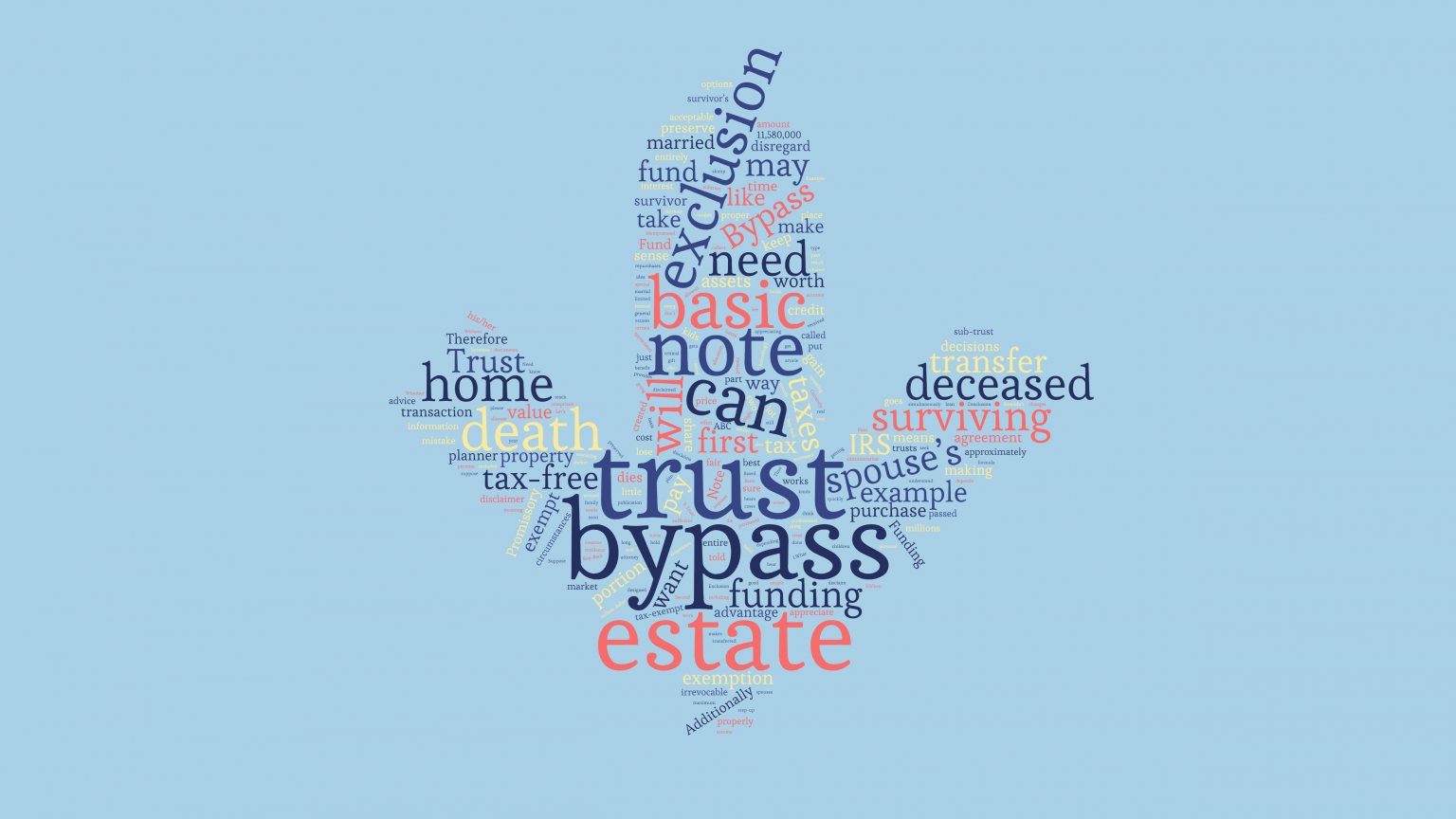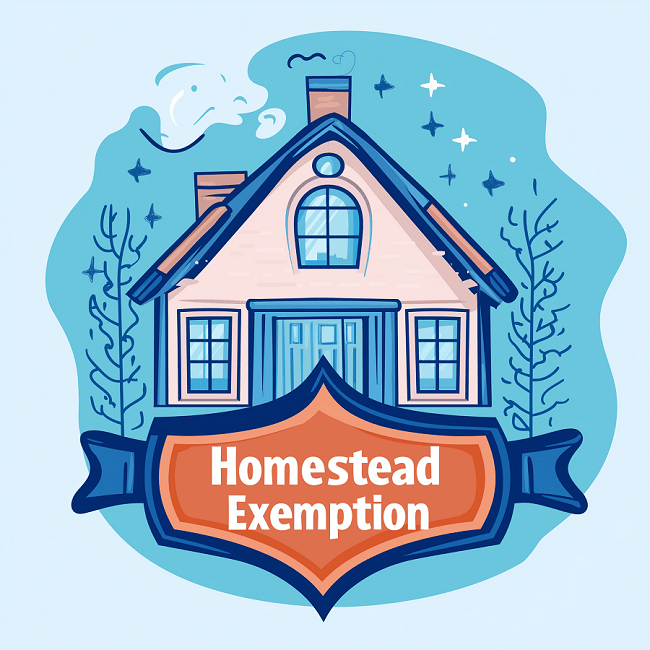When your spouse dies, you will need to do some basic administration and subtrust funding to preserve the maximum tax benefit for your estate. But depending on the funding formula called for in your trust, you may need to place your personal residence into the irrevocable bypass trust. You can get around this, but funding the Bypass trust with a promissory note. But how do you fund a bypass trust with a promissory note?
Funding a bypass trust with a promissory note is acceptable as long (1) your trust permits investing in a promissory note; (2) you do it quickly after the death of the first spouse; and (3) the promissory note bears sufficient interest.
On the death of the first spouse, you need to make critical decisions. What you do here could cost you millions. If you have an ABC trust, or a trust with a survivor’s trust, a bypass trust (or credit trust), and a martial trust, then you need to think about how to fund each of the trusts after the death of the first spouse.
This article will teach you the circumstances where it makes sense to fund a Bypass trust with a promissory note, and how to do it properly. Be cautious. This could be a million-dollar mistake.
1. What is a Bypass Trust?
A bypass trust is a special sub-trust in a married persons’ estate plan that goes into effect when the first spouse dies. It is sometimes called the “credit trust,” the “credit shelter trust,” or the “B-Trust.”
Whether or not you have a bypass trust depends on the type of trust you created (or your estate planner created for you).
For example, if your estate planner told you that you have an “ABC Trust” then you have a bypass trust.
If your estate planner told you that you have an “AB Trust” then you have a bypass trust.
Additionally, if you have a “disclaimer trust” then you may have a bypass trust. The way a disclaimer trust works is that the surviving spouse can disclaim any part or all of the estate. You would do this to take advantage of the estate exemption. If the surviving spouse disclaims a portion of the estate, then the disclaimed portion goes into a bypass trust.
To understand the bypass trust, you need to know how estate taxes work.
The Basic Exclusion.
The IRS imposes estate taxes or “death taxes” on every estate. But not all estates need to pay the tax. The IRS provides a basic exclusion. This “exclusion” is the amount of your estate that is excluded from the estate tax.
Currently the basic exclusion is $11,580,000. This means that you can transfer up to $11,580,000 to your family tax-free. If you want more information on the basic exclusion, see the IRS publication HERE.
If you are married, each spouse gets to transfer up to $11,580,000. This means that a married couple can transfer $23,160,000 tax-free if they have a bypass trust.
When Do You Need a Bypass Trust
A bypass trust is designed to hold the deceased spouse’s share of the basic exclusion. Without a bypass trust, the entire estate of the deceased spouse (including the exempt estate) would pass tax-free to the surviving spouse.
That sounds like a good thing, but in some cases, it is not. The surviving spouse can only transfer up to the amount of the basic exclusion tax-free, which in 2020 means $11,580,000. So if there is no bypass trust, then you lose the deceased spouse’s entire basic exclusion.
A bypass trust holds the deceased spouse’s basic exclusion. That way you do not lose the basic exclusion for the deceased spouse.
For example, suppose you and married and have an estate worth $25,000,000. Your spouse dies in 2020. Based on the basic exclusion, your spouse can transfer $11,580,000 tax-free.
So, you have two options. First, you can take the $11,580,000 for yourself. Second, you can allocate your deceased spouse’s basic exclusion to a bypass trust.
If you take your spouses share for yourself, it becomes part of your estate. Therefore, if you die, you can only transfer your exempt share (which in 2020 is $11,580,000) to your kids tax-free. Thus, on your death, your children would pay taxes on $13,420,000, which turns out to be approximately $5,368,000.
Instead, if you transferred your deceased spouse’s exempt property to the bypass trust, then you preserve his/her $11,580,000 exemption. As a result, on your death, you can transfer $23,160,000 to your kids tax-free. They would only pay tax on $1,840,000, which is approximately $736,000.
So in this example, by making the initial allocation to the bypass trust, you saved $4,632,000 in taxes.
2. How to Fund a Bypass Trust with a Promissory Note.
Let’s stay with the example above. Suppose you have an estate worth $25,000,000. This time, also assume that the estate is comprised of only a home worth $25,000,000. If you want to take advantage of your deceased spouse’s exemption, then you do not want to keep the home entirely in your estate.
On the other hand, you may not want to put a portion on the home into an irrevocable bypass trust.
So what can you do?
You can keep the home entirely in your estate, meaning it is yours to do with what you please. And you can take advantage of the bypass trust by funding it with a promissory note.
The way this works is just like a purchase of the home from the bypass trust.
There are two basic documents you will need to fund your bypass trust with a promissory note properly. You will need a purchase agreement and a promissory note.
The purchase agreement is an agreement between the surviving spouse and the bypass trust where the surviving spouse repurchases the home from the bypass trust for a fair market price. If the home is not purchased at fair market value, the IRS could disregard the transaction.[i]
The promissory note is just a loan from the bypass trust to the surviving spouse for the purchase price of the home. It needs to bear interest, or else the IRS may disregard this transaction.[ii] For more information about disregarded entities and transactions see our article “7 IRS Rules that Make Your Trust a Disregarded Entity.”
Example of Buy-Back
Therefore, in our earlier example, the surviving spouse could put the deceased spouse’s exempt portion of the home ($11,580,000) into the bypass trust. Then the survivor can simultaneously buy-back the home for $11,580,000 by executing a promissory note for $11,580,000.
On the survivor’s death, his/her estate will be worth $25,000,000 but the bypass trust will collect on the promissory note. Accordingly, the basic exemption of the first spouse is preserved.
3. When You Shouldn’t Fund a Bypass Trust With a Promissory Note.
There are certain circumstances where funding a bypass trust with a promissory note may not be the best idea.
If a lot of time has passed between the death of the first spouse and sub-trust funding, then you may not want to do this. Funding the bypass trust with a promissory note is a taxable event. But if it is done soon after the death of the first spouse, then there should be little to no gain because the property received a step-up in basis at death.
But if a lot of time has passed, and the property has increased in value, there will be a gain, and you will have to pay taxes on the gain.
Additionally, when you place tax-exempt assets into a bypass trust, those assets are allowed to appreciate. The appreciated value is still tax-exempt on the death of the survivor. In general, it is best to keep appreciating assets (like a home or other real property) in a bypass trust.
Therefore, if the surviving spouse is going to have to pay some estate taxes, like the example above, and if there is little or no chance that the home will need to be sold before the death of the survivor, then it DOES NOT make sense to fund the bypass trust with a promissory note.
Conclusion.
Funding a bypass trust with a promissory note is a creative way to preserve the deceased spouse’s basic exclusion if there are limited options to fund the bypass trust. But it might not make sense if there are assets that are sure to appreciate in value.
Additionally, you should seek proper advice from a tax professional or estate attorney before making any decisions. The basic exclusion changes each year, so you will need to be sure you have accurate information before you make decisions like this.
As stated above, making a mistake when funding these kinds of trusts can cost you millions. So don’t skimp on getting proper advice.




